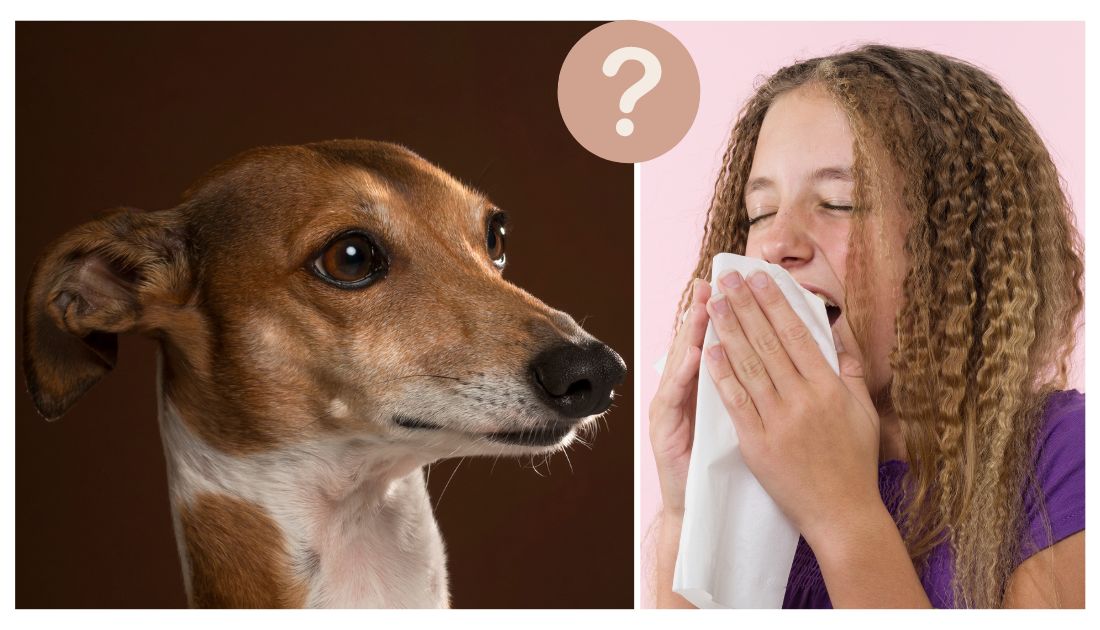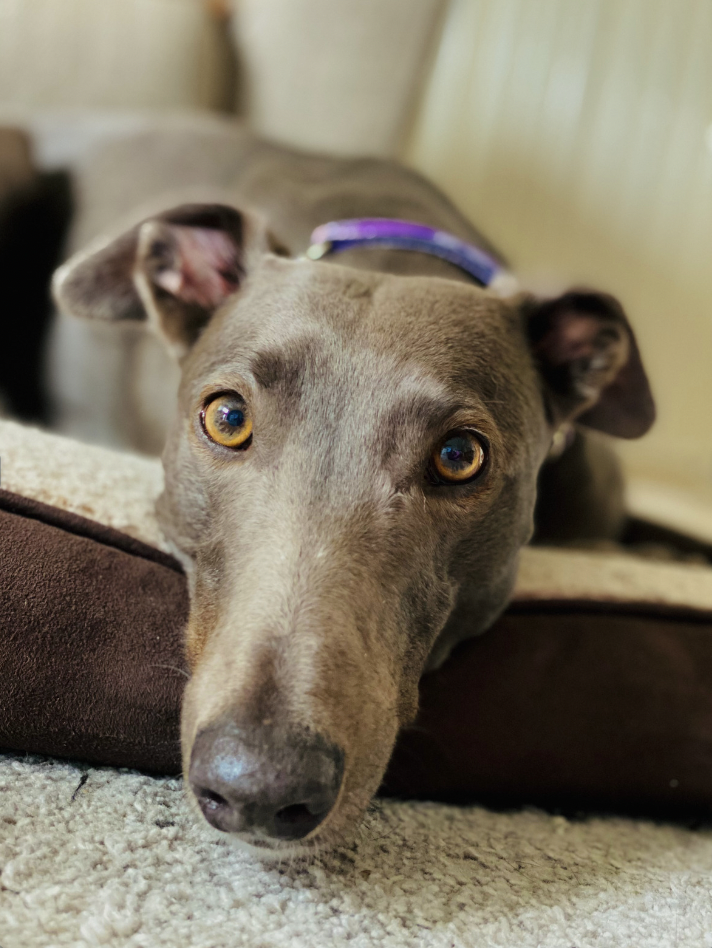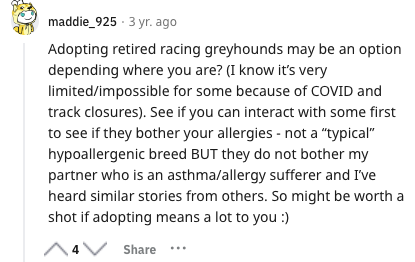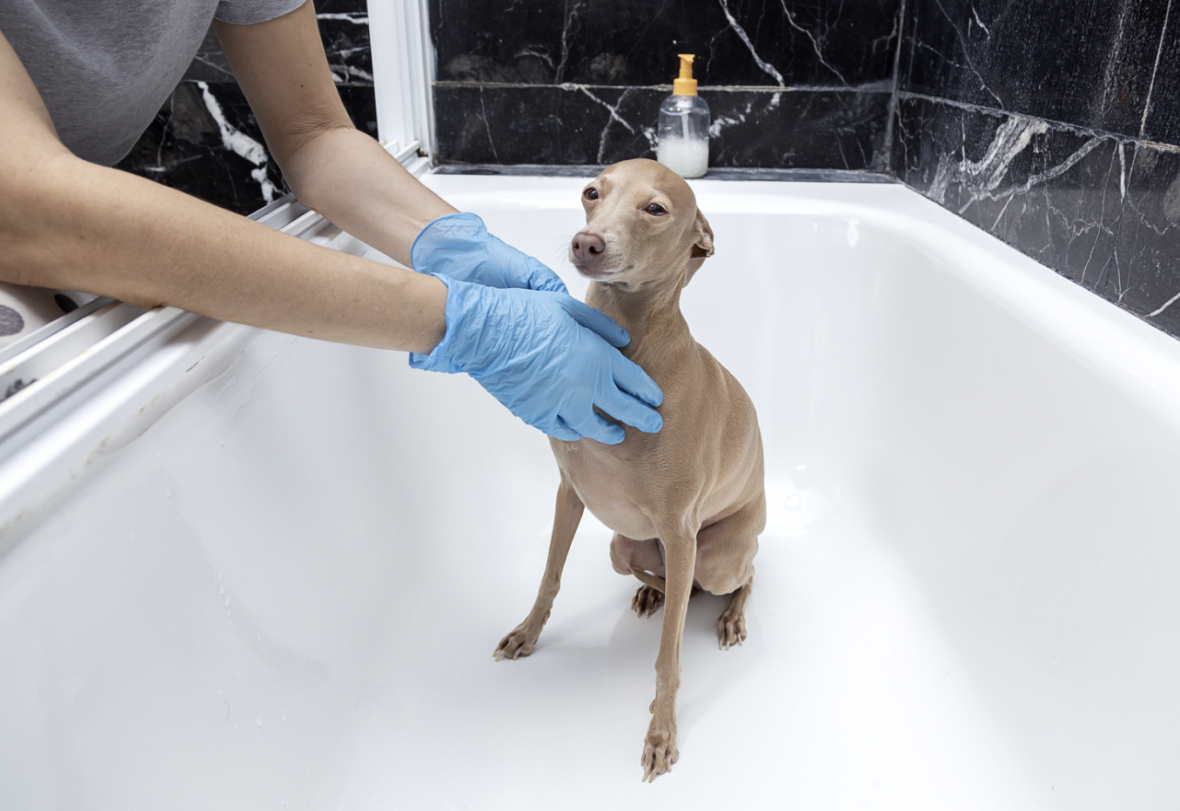Are Greyhounds Hypoallergenic? Are Italian Greyhounds Hypoallergenic?
In the realm of canine companions, the question of hypoallergenic dog breeds often arises, and Greyhounds are no exception. These elegant and gentle dogs are known for their impressive speed and graceful nature. But for allergy sufferers, the pressing question remains: Are Greyhounds hypoallergenic? In this article, we delve into the hypoallergenic qualities of Greyhounds, explore the factors that contribute to allergies, and provide insights to help you make an informed decision.

Understanding Hypoallergenic Dog Breeds
Before diving into the specifics of Greyhounds, it’s important to understand what hypoallergenic dog breeds are. Hypoallergenic breeds are believed to produce fewer allergenic substances or shed less dander, reducing the risk of triggering allergic responses. While no dog breed can be completely hypoallergenic, some breeds are considered more compatible with individuals who have allergies.
Are Greyhounds Hypoallergenic?

Unfortunately, Greyhounds are not typically considered hypoallergenic dogs. Their short, smooth coats do shed, releasing dander and potentially allergenic proteins into the environment. Additionally, Greyhounds have a higher tendency to produce saliva, which can also contain allergenic proteins. These factors make them less suitable for individuals with allergies seeking a hypoallergenic companion.
“I have terrible allergies and I have a greyhound. I take an allergy pill every day and I don’t have any problems. I think greyhounds are a great breed for people with allergies because they shed so little”
Chloe, Greyhound owner
While Greyhounds are not hypoallergenic, but they do shed less than some other breeds. They have a single coat of hair that is very fine and smooth. This means that their dander (dead skin cells) is not as easily airborne as the dander from dogs with double coats. However, some people with allergies may still be sensitive to greyhounds.



Factors that Contribute to Allergies
To understand why certain breeds may trigger allergies, it’s important to recognize the sources of allergens. Allergies are immune responses triggered by proteins present in pet dander, saliva, urine, and feces. When exposed to these proteins, individuals with allergies may experience symptoms such as sneezing, itching, and respiratory issues.
Managing Allergies with Greyhounds
If you are an allergy sufferer who still wishes to have a Greyhound as a companion, there are steps you can take to minimize allergic reactions:
Regular Grooming:

Regular brushing of your Greyhound’s coat can help reduce loose hair and dander, minimizing the presence of allergens in your home. Additionally, bathing your Greyhound with hypoallergenic shampoos can further reduce the allergen load on their skin and coat.
Clean Living Environment:

Maintaining a clean living environment is crucial for allergy management. Regular vacuuming, using air purifiers with HEPA filters, and keeping bedding and furniture clean can help reduce the accumulation of allergens. Creating designated pet-free areas in your home, such as bedrooms, can provide allergy-free zones.
Consider an Air Filter
Air or HVAC filters are also great for reducing the amount of loose dander and fur floating around in your home. The American College of Allergy, Asthma, and Immunology recommends using HEPA filters for smaller living spaces and single rooms and HVAC filters with a MERV between 11 and 13 for larger homes.


Consult with an Allergist:

If you have severe allergies, it is advisable to consult with an allergist before bringing a Greyhound into your home. They can provide personalized advice and recommend appropriate allergy management strategies, including medications or immunotherapy.
Consider Fostering or Pet Allergen Testing:
If you are unsure about your compatibility with Greyhounds or any other dog breed, consider fostering a Greyhound temporarily to assess your allergic reactions. Another option is pet allergen testing, where a healthcare professional can perform skin tests or blood tests to determine your specific allergens and their severity.
Frequently Asked Questions
Are Greyhounds hypoallergenic?
Greyhounds are not typically considered hypoallergenic due to their shedding and saliva production.
Can people with allergies keep Greyhounds as pets?
While some individuals with allergies may be able to live comfortably with Greyhounds, they are not recommended for people with severe allergies.
What are common symptoms of pet allergies?
Common symptoms of pet allergies include sneezing, itching, respiratory issues, and skin irritations.
Are there any hypoallergenic dog breeds?
While no dog breed is entirely hypoallergenic, certain breeds are considered more compatible with individuals who have allergies. Examples include Poodles, Bichon Frises, and Schnauzers.
Can grooming help reduce pet allergens?
Regular grooming, including brushing and bathing, can help reduce the amount of allergens present on a dog’s coat and skin.
Are Italian Greyhounds hypoallergenic?
No, Italian Greyhounds are not considered hypoallergenic dogs. They have short, smooth coats that shed, releasing dander and potentially allergenic proteins into the environment.
Can people with allergies keep Italian Greyhounds as pets?
While some individuals with allergies may be able to tolerate Italian Greyhounds better than other dog breeds, they are not recommended for people with severe allergies. It’s essential to spend time with an Italian Greyhound before making a commitment to see if you experience any allergic reactions.
Are Italian Greyhounds low-shedding?
Italian Greyhounds do shed, but their short coat makes the shedding less noticeable compared to breeds with longer hair. Regular grooming and brushing can help minimize loose hair and reduce allergen levels.
Do Italian Greyhounds produce less dander than other breeds?
There is no definitive evidence suggesting that Italian Greyhounds produce less dander compared to other breeds. Dander is a common allergen found in all dogs, regardless of the breed.
Can regular grooming help reduce allergens with Italian Greyhounds?
Yes, regular grooming practices such as brushing, bathing, and keeping the coat clean can help reduce the amount of loose hair and dander on an Italian Greyhound. This may help minimize allergen exposure.
What other factors contribute to allergies with Italian Greyhounds?
Besides dander, Italian Greyhounds also produce saliva, which can contain allergenic proteins. Additionally, some individuals may be sensitive to other allergens, such as dog urine or feces, which can be present with any dog breed.
Are there any hypoallergenic dog breeds similar to Italian Greyhounds?
While no dog breed is entirely hypoallergenic, there are breeds that may be better suited for individuals with allergies. Some examples include the Bichon Frise, Poodle, or Portuguese Water Dog.
Can allergy medications help manage allergies with Italian Greyhounds?
Allergy medications can provide temporary relief from allergy symptoms, such as sneezing or itching, but they do not address the underlying cause. Consult with an allergist or healthcare professional for appropriate recommendations and guidance.
How can I create an allergy-friendly environment with an Italian Greyhound?
Regular cleaning, vacuuming, and using air purifiers with HEPA filters can help reduce allergens in your home. Designating pet-free areas, practicing good hygiene, and considering allergen-resistant bedding and furniture covers can also contribute to an allergy-friendly environment.
Should I consult with an allergist before getting an Italian Greyhound?
If you have known allergies or sensitivities, it is advisable to consult with an allergist before bringing an Italian Greyhound into your home. They can provide personalized advice and help determine if the breed is suitable for you.
Conclusion
While Greyhounds may not be hypoallergenic dogs, some individuals with allergies may find that they can live comfortably with these gentle companions. However, it’s important to recognize that individual sensitivities and allergies can vary greatly. If you have allergies and are considering adopting a Greyhound, taking precautions such as regular grooming and maintaining a clean living environment can help minimize allergen exposure. Consulting with an allergist is also highly recommended to ensure the best possible outcome for both you and your potential Greyhound companion.
Related Articles:
- Finding the Perfect Hypoallergenic Dog for Your Family: Tips for Adopting a Dog That Won’t Trigger Allergies
- 55 Hypoallergenic Dog Breeds You Might Be Able To Live With If You Have Allergies
- Are Dachshunds Hypoallergenic? A Guide to Managing Allergies with Your Doxie



